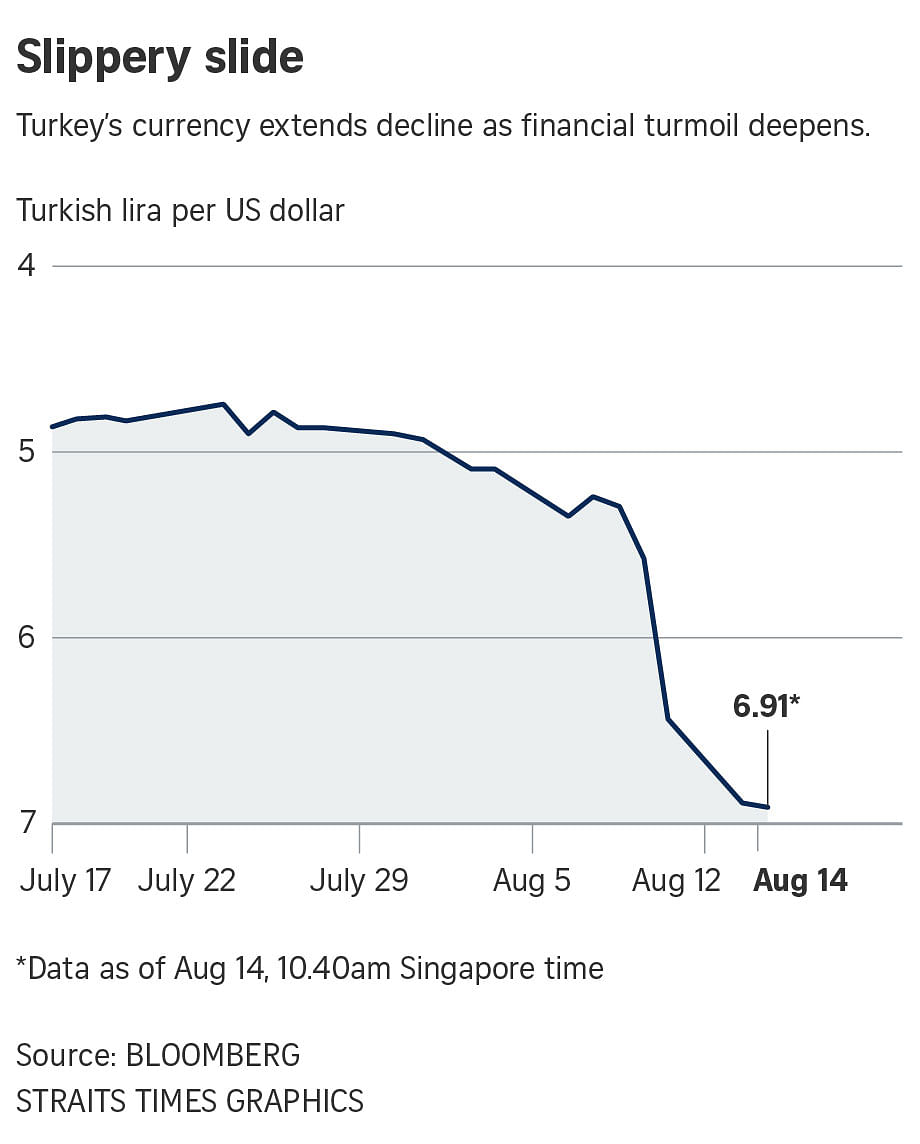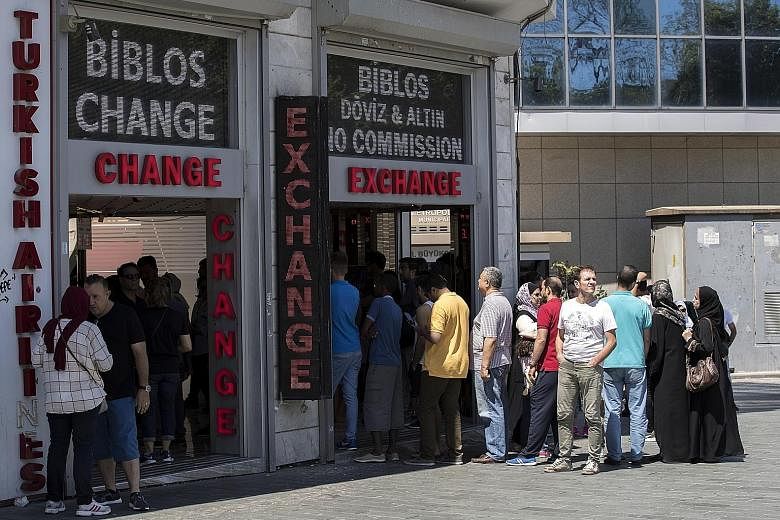LONDON • The euro slid to a fresh 13-month low, emerging market currencies slumped further and the yen surged to a six-week high yesterday as the fallout from the Turkish lira's crash sent investors into safe-haven currencies.
As investors dumped riskier assets and worried about contagion, emerging markets reeled, with MSCI's broadest index of Asia-Pacific shares outside Japan falling 1.6 per cent to a near one-year low.
Japan's Nikkei lost 2 per cent with every bourse in the region in the red. Singapore's Straits Times Index fell 39.44 points, or 1.2 per cent, to 3,245.34, as bank stocks tumbled.
South Africa's rand was down 2.7 per cent after falling more than 10 per cent in earlier trading. Mexico's peso was 2 per cent lower, and the Russian rouble was down a more modest 0.8 per cent.
Turkey's lira rebounded yesterday from record lows after the central bank pledged to provide liquidity and cut reserve requirements for banks, but the currency was still down around 10 per cent on the day. It has shed more than two-fifths of its value this year.
"The big fear in the market is that we are headed for a full-blown emerging market crisis," said Mr Ulrich Leuchtmann, a Frankfurt-based strategist at Commerzbank, citing the 1997 Asian financial crisis when even countries with a sound macroeconomic position were sucked into a deep sell-off.
He added that he believed the market was "fundamentally in a different position" today because many emerging market central banks retained the confidence of investors after hiking interest rates over the past year.
But a scramble into currencies deemed safer, such as the yen, underlined investor nervousness.
The euro fell to as low as US$1.1365, a 13-month low, before recovering slightly.
The US dollar, which has rallied since the Turkish lira crisis exploded, gained 0.1 per cent to 96.463 against a basket of major currencies, just below its 13-month high of 96.522.
The Swiss franc jumped to 1.1288 to the euro, within a whisker of a one-year high against the currency, but was little changed versus the US dollar.
The yen surged half a per cent against the US dollar to 110.35, after earlier hitting a six-week high of 110.11. The euro slipped 0.8 per cent against the yen to 125.55, close to a 21/2-month low of 125.15.

The most striking moves were in emerging markets as the Turkish lira's rout rippled outwards.
Investors have grown increasingly concerned about President Recep Tayyip Erdogan's growing control over the economy and a deepening diplomatic rift with the United States, with those concerns snowballing into a market panic last week. The Turkish lira hovered at around seven lira per US dollar yesterday.
China's yuan dropped 0.4 per cent in offshore markets to 6.8942 yuan per US dollar. The Indian rupee and Indonesian rupiah also weakened, down by 1.5 per cent and 0.8 per cent, respectively.
BNY Mellon chief currency strategist Simon Derrick said that without more meaningful action from the Turkish authorities, there would be renewed pressure on the lira.
REUTERS

